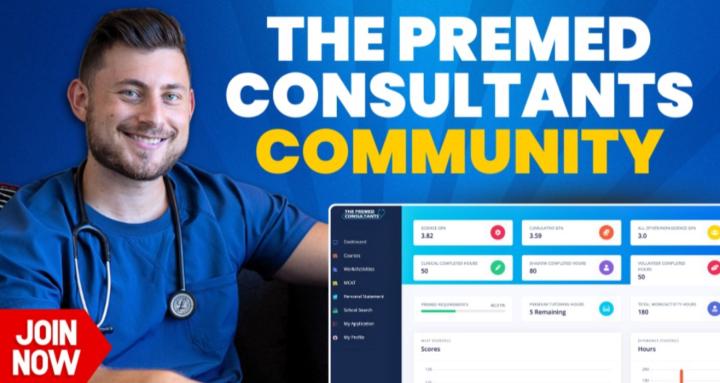Aug '25 • General discussion
How to Avoid a Premed Gap Year — Freshman & Sophomore Year Tips
Many aspiring doctors start college with a big question:
"Can I get into medical school without taking a gap year?"
While going straight from undergrad to med school is possible, it requires careful planning from day one. In this guide, we’ll cover:
- The freshman and sophomore year course schedule you need to stay on track.
- The GPA benchmarks for applying without a gap year.
- Why a gap year can still be a smart move for many premed students
Why Premed Students Take a Gap Year
Before we jump into avoiding one, let’s acknowledge the reality:
Most premed students do take a gap year before starting medical school. This extra year can help you:
- Boost your GPA with senior-year grades.
- Gain more clinical and research experience without rushing.
- Prepare for the MCAT with less stress.
- Mature professionally before med school.
However, if you’re set on applying straight through, you’ll need a strategic academic and extracurricular plan from your very first semester.
Freshman Year Premed Schedule to Avoid a Gap Year
To be ready to apply in June of your junior year, you’ll need to take the MCAT by May of that year. That means finishing all your MCAT-related prerequisites on time.
Ideal Freshman–Sophomore Timeline
- Freshman Fall: General Chemistry I + Intro Biology
- Freshman Spring: General Chemistry II + Intro Biology
- Sophomore Fall: Organic Chemistry I
- Sophomore Spring: Organic Chemistry II
- Junior Fall: Biochemistry
Many medical schools require Organic Chemistry before Biochemistry. If you get behind, you might have to take summer classes — fine for one subject (like Physics or Chemistry), but admissions committees may question a transcript heavy with summer-only prerequisites.
GPA Benchmarks for Applying Without a Gap Year
Your grades are just as important as your timeline.
Why GPA matters more for straight-through applicants:
If you apply in your junior year, senior-year grades won’t appear on your application. That means you lose the chance to boost your academic record before schools review it.
Recommended GPA Target
- Science GPA: At least 3.7 before applying.
While students with lower GPAs can still apply, it’s riskier — especially without extra time for coursework, MCAT prep, and clinical hours.
Other Factors to Consider
Applying straight through means:
- Completing shadowing, volunteering, and clinical hours on a compressed timeline.
- Studying for the MCAT earlier.
- Competing against applicants with more experience.
I applied straight through myself, but I had a 4.0 GPA, 90th+ percentile MCAT, and years of planned experiences. Even with that, it was intense — and it’s only gotten harder over time.
Why a Gap Year Might Be the Better Option
If you’re on the fence, here’s why I often recommend a gap year:
- Time to improve academics.
- More robust extracurriculars — research, leadership, patient care.
- Less stress during undergrad.
- Personal growth before starting medical school.
Contrary to the myth, you won’t “lose momentum” — the year goes fast, filled with applications, interviews, and often full-time healthcare work.
Final Advice
If you’re determined to skip the gap year:
- Plan your freshman-year courses carefully.
- Keep your science GPA high.
- Stay on top of extracurriculars and MCAT prep.
If you’re open to it, a gap year can make you a stronger, more competitive applicant — and reduce your stress along the way.
2
0 comments

skool.com/premed
Lead by Admissions Expert Dr. Adam Nessim this space for pre-med students to ask their burning questions, get MCAT Prep, and admissions insights
Powered by
